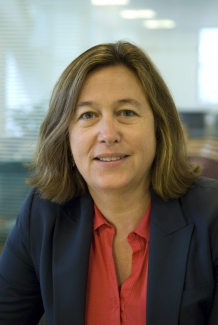The University of Southern California Center for Body Computing is launching a Digital Health Access Initiative focused on providing smartphones and data plans to the underserved in order to improve access to digital healthcare available now via the center’s new Virtual Care Clinic. The goal is to use technology to provide healthcare to all patients, particularly those without resources.

The Virtual Care Clinic is just the latest healthcare innovation from the center which is celebrating its 10th anniversary. The center develops homegrown projects, like apps and devices, to manage chronic disease and to enhance athletic performance.
FierceMobileHealthcare reached out to center founder Leslie Saxon (pictured right), a digital health guru and USC cardiologist, for insight on the initiative, and her thoughts on the future of mHealth.
FierceMobileHealthcare: With a decade in the books, how has the Center for Body Computing impacted the healthcare industry?
Leslie Saxon: Simply put, we set the vision, show prototypes of the new tools and models, like our Virtual Care Clinic, convene others, like creatives, technologists, entertainment industry and traditional providers. We bring in the best athletes and pro teams and elite military and talk about how we can make them better and last longer.
FMH: How and why did the Digital Health Access Initiative come about?
Saxon: Our structure is that we create a digital solution and then test it as part of a research protocol to prove that it actually meets a need and improves care or performance. We also work and partner with digital health product companies whose products are now FDA approved and ready to sell into health systems.
So far, however, regulations have not been designed for the digital health era. The landscape seems slightly more friendly in provider environments where payment is a capitated versus fee for service model. Nonetheless, we want everyone to have access to these products, regardless of their insurance plan.
FMH: How would you describe the impact of mobile tools and technology on healthcare and patient interaction?
Saxon: The ability to have healthcare questions, diagnostics and access to the world's experts enabled by a smartphone and associated sensors is profound. It gives patients the on-demand piece, but also the who, what, where and when pieces. It also elevates and standardizes how we educate patients, that means uniform quality.
FMH: How do you see the digital health landscape evolving in the next decade?
Saxon: In 10 years the electronic medical record will be the minor player, in terms of where a person’s health history lives. Most of that information will be kept on the phone or in a secure cloud, and the patient will be highly engaged with collecting, curating and sharing that data. Most doctor visits will be like calling up a YouTube meets virtual human docs and there will also be an aspect of virtual reality.
FMH: What is needed from the government to continue to push digital health forward?
Saxon: The National Institutes of Health discovery and funding model has been one that has enabled much discovery. Unfortunately, it doesn’t work well for digital health innovation. There needs to be a Digital Health NIH.
The U.S. FDA has been very forward-looking in this regard and has kept pace. This needs to be a priority at multiple levels of multiple governments. It’s just as important for societies with developed and robust healthcare infrastructures as it is for those without these things. Digital healthcare could be one of the U.S.'s strongest exports and be the next wave, like tech companies are now.
FMH: You’ve been heralded as a very tech-savvy doctor. What initially prompted your interest in health technology and what do you see as the biggest hurdles preventing other physicians and health leaders from fully embracing such tools?
Saxon: I want to provide more care to more people than those I physically contact. Myself and thousands of docs like me trained into their 30s to be experts, and we are limited in our impact. Data, even with the EMR, is siloed. Digital brings experts to the world, data is continuously collected and diagnostics are provided with context. It’s global and it learns. That means we can solve one of the most basic problems of humanity, access to healthcare education and actual care, regardless of income or location.
Editor's Note: This interview has been edited for clarity and length.